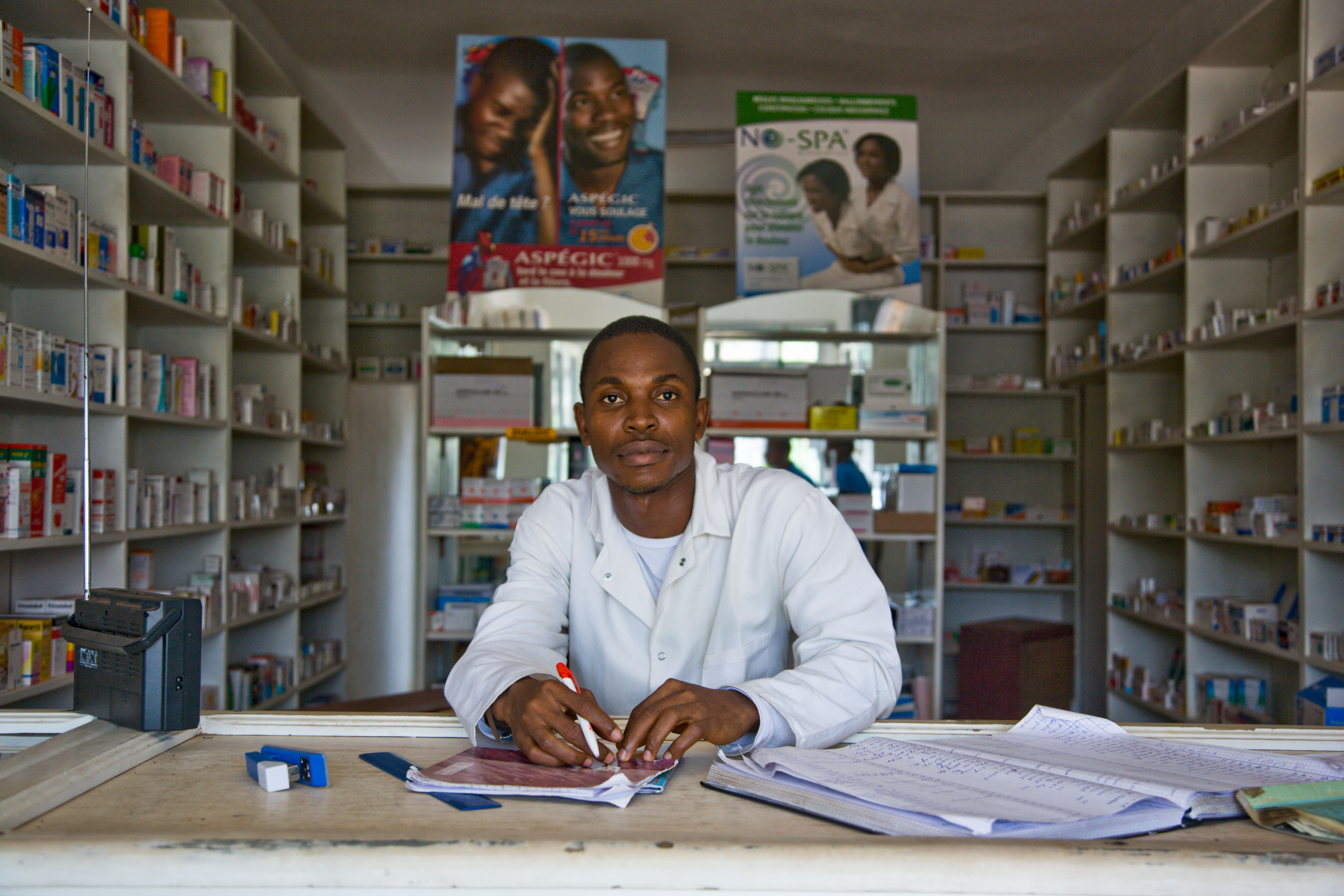Adopting international standards to ensure the quality of medicines and reinforce the supply chain

Improving Guinea’s ability to regulate pharmacies, like this outlet in Conakry, is a key part of eliminating dangerous substandard and falsified medicines in the country.
Signed into law by the President of Guinea in July 2018, an update to the country’s 24-year-old pharmaceutical regulatory law has given authority to the National Directorate of Pharmacies and Medicines (DNPM) for medicines quality assurance and surveillance of medicines in circulation. The law also establishes a new system for regulating the national health commodity supply chain. The revised legislation critically reinforces medicines governance in Guinea, where a significant number of pharmaceuticals on the national market are currently unregistered.
Efforts to update the law were punctuated by the 2014–2016 Ebola epidemic. That crisis served as an important reminder of Guinea’s need to strengthen the surveillance of medicines both at the time they are registered and once they enter the supply chain. Systems strengthening is also helping ensure that national authorities have the tools to combat falsified products and the proliferation of a parallel medicines market.
Over a period of 2 years, a committee composed mainly of government representatives and members of the National Order of Pharmacists (NOP) adapted international standards to medicines and pharmacy regulation in the Guinea context. Chaired by the Director General of Health, Dr. Sidiki Diakité, the committee was also supported by technical assistance providers from two USAID programs: the Systems for Improved Access to Pharmaceuticals and Services (SIAPS) and the Promoting the Quality of Medicines (PQM) program, which is implemented by the U.S. Pharmacopeial Convention.
The new law stipulates that quality control is required for all health products in Guinea at all stages, including local production, registration for market authorization, importation, and post-marketing surveillance. In many ways, though, ratifying these measures means the work is only half done. A pharmaceutical regulatory law requires regulations and guidelines, and national authorities are soliciting PQM’s continued support for their development. Dr. Diakité points out that this experience also shows that pharmaceutical regulatory laws can be enacted even if the human and financial resources required for full implementation have not yet been secured. “Doing so may in fact stimulate the funding process,” he explains.
By creating a solid foundation for developing its pharmaceutical regulatory system, Guinea has taken an essential stride forward in the effort to replace substandard and falsified medicines in the national market with quality-assured medicines.
For Guinea, which was considered ground zero of the Ebola epidemic and whose entire population is at risk of malaria, strengthening medicines quality assurance can have a significant impact on health outcomes. In this context, the Promoting the Quality of Medicines (PQM) program provided technical assistance for revision of the country’s pharmaceutical regulatory law and has also assisted the country’s national quality control laboratory in meeting rigorous international standards for achieving ISO certification.
